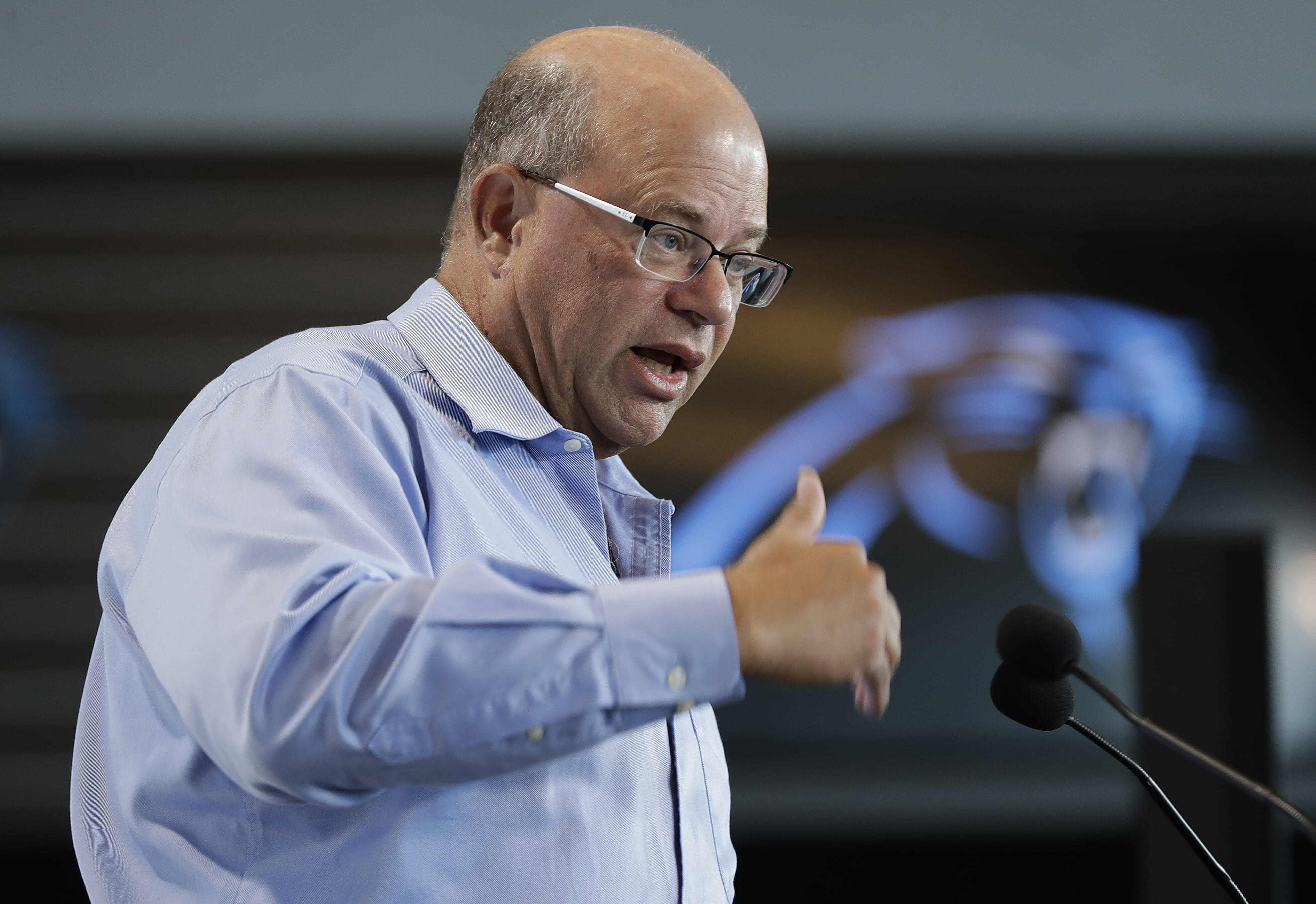
Carolina Panthers offered $120M in tax breaks to relocate
COLUMBIA, S.C. (AP) — South Carolina appears ready to offer $120 million in tax breaks to the Carolina Panthers to move their practice fields and team headquarters out of North Carolina, after the state Senate overrode objections that a billionaire NFL owner didn’t need public help.
The Senate voted 27-15 on Thursday to exempt the Panthers from paying state income taxes for players, coaches and other employees for 15 years as long as they use the money to build their new complex near Rock Hill.
The team will continue to play its games 15 miles (25 kilometers) to the north in Charlotte, North Carolina.
Gov. Henry McMaster was an enthusiastic backer of the proposal, along with a number of lawmakers. They spoke of South Carolina crawling out of the shadow of North Carolina and its massive Charlotte with hotels, restaurants as well as potentially landing a Major League Soccer team and hearing ESPN reports from Panthers practices constantly saying “Rock Hill, South Carolina.”
“This is a golden ticket,” said Republican state Rep. Gary Simrill of Rock Hill.
Some of the 15 senators who voted against the bill questioned why Panthers owner David Tepper needed any help after buying the Panthers for more than $2 billion last year while still having billions in the bank.
“This guy didn’t acquire eleven-and-a-half billion giving away the farm. He has driven hard deal. This side has not,” state Sen. Dick Harpootlian said.
Tepper didn’t immediately respond to the vote, but told reporters Wednesday he wasn’t building in South Carolina without the incentives.
Other senators against the bill said a state Commerce Department report suggesting the Panthers new complex would bring $3.8 billion in economic benefits was wildly exaggerated.
Harpootlian, a Democrat from Columbia, paid for his own analysis from a conservative economist often used by Republicans who said the best case scenario brought the state only a third of that. Harpootlian’s report found the state’s review depended on every Panthers player and coach moving to South Carolina and spending their entire paychecks here and the team buying all the material for the new facility from companies in the state.
The initial discussion of the facility also included an orthopedic hospital that may turn out to only be a sports injury rehabilitation facility, Harpootlian said, pointing out the Panthers never testified publicly about what they wanted to do or put any promises in writing.
“If we accomplished anything, maybe we will take a closer look at these deals,” Harpootlian said.
Tepper has made a new indoor practice facility a priority after heavy rains late last season forced the Panthers to move practices to a hotel ballroom. He also wanted to continue the team’s “two states, one team” attitude that began when they played their inaugural season in 1995 at Clemson’s stadium while their stadium in Charlotte was being built. The team still holds training camp every summer at Wofford University in Spartanburg, South Carolina.
North Carolina Gov. Roy Cooper didn’t respond to South Carolina’s vote Thursday. Bur a spokesman for North Carolina Senate leader Phil Berger said it’s his understanding Cooper planned no incentives for a practice facility in his state.
“The state’s partnership with the Panthers has been a successful one for the past 25 years and we hope they will keep pounding in Charlotte for years to come,” Berger spokesman Bill D’Elia said in a statement.
Tepper met privately with McMaster and legislative leaders in March and they immediately introduced the tax break proposal. The House passed it 90-25 less than two weeks after it was announced.
The House and Senate are expected to work out a few minor changes and McMaster then will likely sign the bill.
The Senate debated the bill for more than two hours with several twists and turns. Republican Sen. Larry Grooms of Charleston suggested adding a proposal that would require the Panthers to play two regular season home games a year at one of South Carolina’s two major college football stadiums. It was killed and there was no indication whether the Panthers or the NFL would have allowed it.
While Tepper would benefit from the bill, South Carolina would also benefit greatly for decades, well after Cam Newton is finished as the team’s franchise quarterback, Simrill said.
“The Panthers organization, the average pay is 39 times that of the median South Carolina income. We derive our income between sales tax and income tax. Look at the income tax that will come from the Panthers organization to South Carolina,” Simrill said.
That is a risky bet without nailing down the promises from the Panthers, Harpootlian said.
“It might be cheaper to build a house for Cam Newton and ask him to live in Columbia,” Harpootlian said.
___
Gary D. Robertson in Raleigh, North Carolina, contributed to this report.
___
Follow Jeffrey Collins on Twitter at https://twitter.com/JSCollinsAP . Read his work at https://apnews.com/search/jeffrey%20collins
The Western Journal has not reviewed this Associated Press story prior to publication. Therefore, it may contain editorial bias or may in some other way not meet our normal editorial standards. It is provided to our readers as a service from The Western Journal.
Truth and Accuracy
We are committed to truth and accuracy in all of our journalism. Read our editorial standards.
Advertise with The Western Journal and reach millions of highly engaged readers, while supporting our work. Advertise Today.












